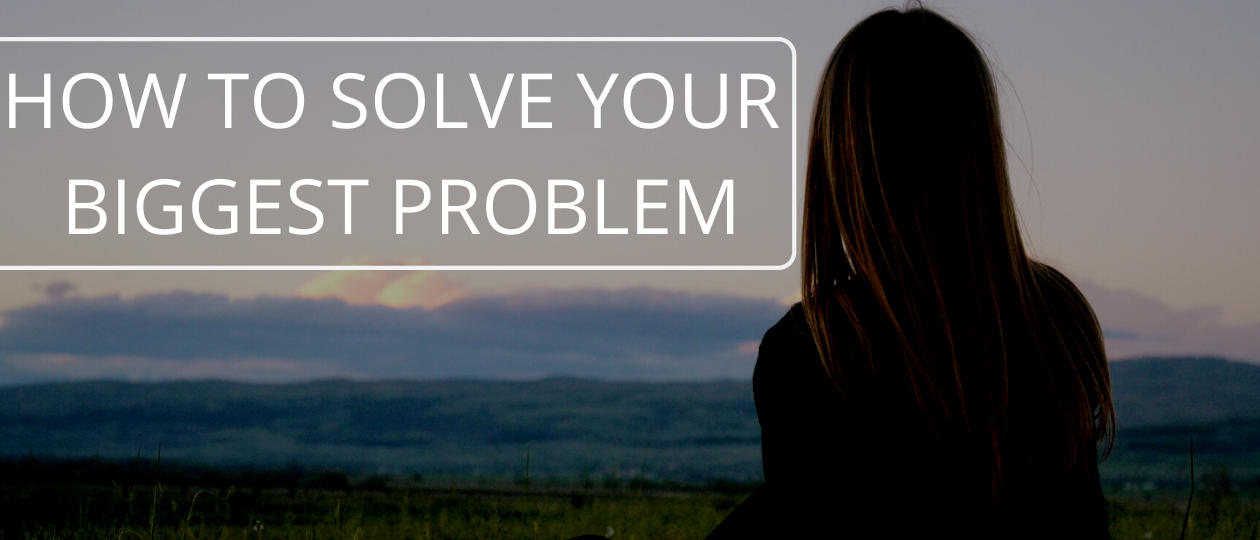How to solve your biggest problem
Thirty years ago, there was only one daily health practice (apart from eating your fruits and veggies) recommended by the United States government: meditation. I’ll say again, meditation was not the first recommendation, it was the only recommendation—and in today’s unprecedented global upheaval, it has become a hotter topic than it’s been since 2004.
It reminds me of something I learned years ago from my good friend, Mark Victor Hanson, co-author of the Chicken Soup for the Soul books, which I believe have made him and his co-author the top-selling non-fiction authors in US history with something like 200 million books sold. Mark once told me that if you count the number of complaints you’re receiving about something from the public, the number of people who feel the same way is typically at least twenty times greater. The rest are just suffering in silence.
So now we have more people reaching out for the help meditation can provide than at any point in the past 16 years, and I have to wonder how many more are out there suffering stress, anxiety, anger, health problems, and dissatisfaction with their life without speaking up. Even outside of our current crisis, and even with all the breakthroughs we've made in recent decades, all the measures of illness in our society, like the number of prescriptions written, surgeries performed, and the number of people diagnosed, continue to set all-time records.
Out of all this, a thought immediately occurs to me: it’s not working! As good and useful as these medical advancements may be, for the average person it’s not enough to enable them to live their best life. Our pills, our procedures, and in this case, our meditations just aren’t up to the task on their own. So now we finally come to the real question: how do you solve your greatest problem?
Well, first of all, you'd better be sure about what your greatest problem is. Today we seem to have hundreds of millions—if not billions—of people crying out for the health and freedom from anxiety that meditation offers. And although meditation is certainly a useful, powerful tool, I think those people have already missed their turn. I’m sure you’ve heard the expression that an ounce of preventative is worth a pound of cure. Well, the first step to really, permanently solving the problem keeping us from our best life is to realize that we have unintentionally chosen stress, anxiety, anger, health problems, and strained relationships.
This is what our five questions have been leading up to because this last, first step only works if you’re able to make a real, informed commitment. The greatest problem—for everyone except maybe a few people in extreme circumstances—is the lifestyle of self-interest that nearly all of us grow up thinking is completely normal and healthy. That way of life and the stress that is its inevitable result is the real source of all the things we try to fix with meditation or pills or therapy. Again, this is not to say that those things are good and useful. Picture a burst pipe that is flooding your house with water, and all those sorts of treatments are towels. If you want a dry house, towels will probably have to be involved at some point, but the only way to deal with the problem permanently is to turn the water off.
This is not an easy change to make. A lot of people, such as myself, can only make it when their circumstances get so bad that they feel they have nothing to lose. For me, that was the night Hope kicked me out of the house, and I realized that even though I treated her well—I mean, I was stupid about a lot of things, but I was always kind, at least—the truth was that I hadn’t really loved her as I came to understand the word. It was a relationship of self-interest. It worked because we could do things and fill needs for each other, and when we started to lose the ability to do that, the relationship stopped working.
I once wrote a thesis on people who had near-death experiences and the effect that these had on their lives. It nearly always changed them for the better, and often drastically for the better. I found so many stories of people whose friends told them they seemed like a completely different person after their incident. I heard the same after my own experience, even though my life was never physically in danger. I think it’s what happens when a person is forced to realize the end results of the way they’ve been living.
The best advice I can give you is not to rush into this commitment. Living in love in the present moment isn’t something you can just decide to do through willpower. It takes time to get your subconscious on your side, and you have to be honest with yourself about where you are. Maybe you don’t actually want to live that way, you just know you should because you want to be happy and healthy. That’s okay. You can start there. So you meditate, you pray, or you talk to your unconscious mind—what ancient manuscripts call the heart. Ask to keep making progress, keep drawing closer, and keep using our tools to clear away obstacles that would prevent you from living that way.
Changing something as fundamental as this is guaranteed to be scary, which is why you need to take the time to make sure you’re serious about it. But when you finally do make the leap to living in love, I promise you won’t regret it.
Have a blessed, wonderful day!
Alex Loyd




Add a Comment